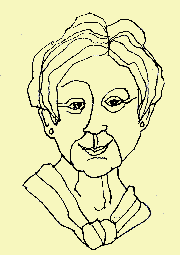The History of Our Name

Reprint of an interview with Joyce Winsor, founder of Crone.
Interview by Dana Cummings.
The word “crone” hasn’t always been derogatory. In pre-Christian times, very old women were particularly important members of communities. They were leaders, artists, healers, midwives, counselors. They were seen as the fulfillment of female life experience and wisdom – from the unrestrained youthfulness of the maiden, through the life-sustaining importance of the mother, to the calm, evolved and confident wisdom and compassion of the very old woman.
The sources of wisdom in the old woman came from a lifetime of commitment to caring and listening and connecting. Without these fierce and ancient commitments, human life could literally not have continued.
We chose the name deliberately, with full awareness of its current negative connotations. We chose it in order to confront the issues facing us as aging women and to raise important questions about our attitudes and feelings toward these issues. So, by bringing the term “crone” and these concepts out of the shadows and into the light, we can, once again, reveal the values, acknowledge the strengths, learn from the insights, and honor the experiences of old women.
Together, old women are discovering the strength that comes with knowing who we are. As May Sarton replied when asked how she felt about growing old, “I am more myself than I have ever been.” Knowing ourselves takes time; it’s a gradual exploration and acceptance of all that we are. It is also a freeing of ourselves from having to be something for someone else, freedom to see ourselves, and be seen, just the way we are, not through the filter of others’ expectations.
Together, old women can share feelings, fears, and insights, accept each other’s changes, encourage each other’s growth, share activities and interests. In short, learn to grow old together. So, the reason that we chose “that awful name” was because we felt pride in being old. We found purpose and a sense of our own power in the image of a strong and wise old woman, and felt that, together, we could restore that image to its rightful place of honour and respect.
